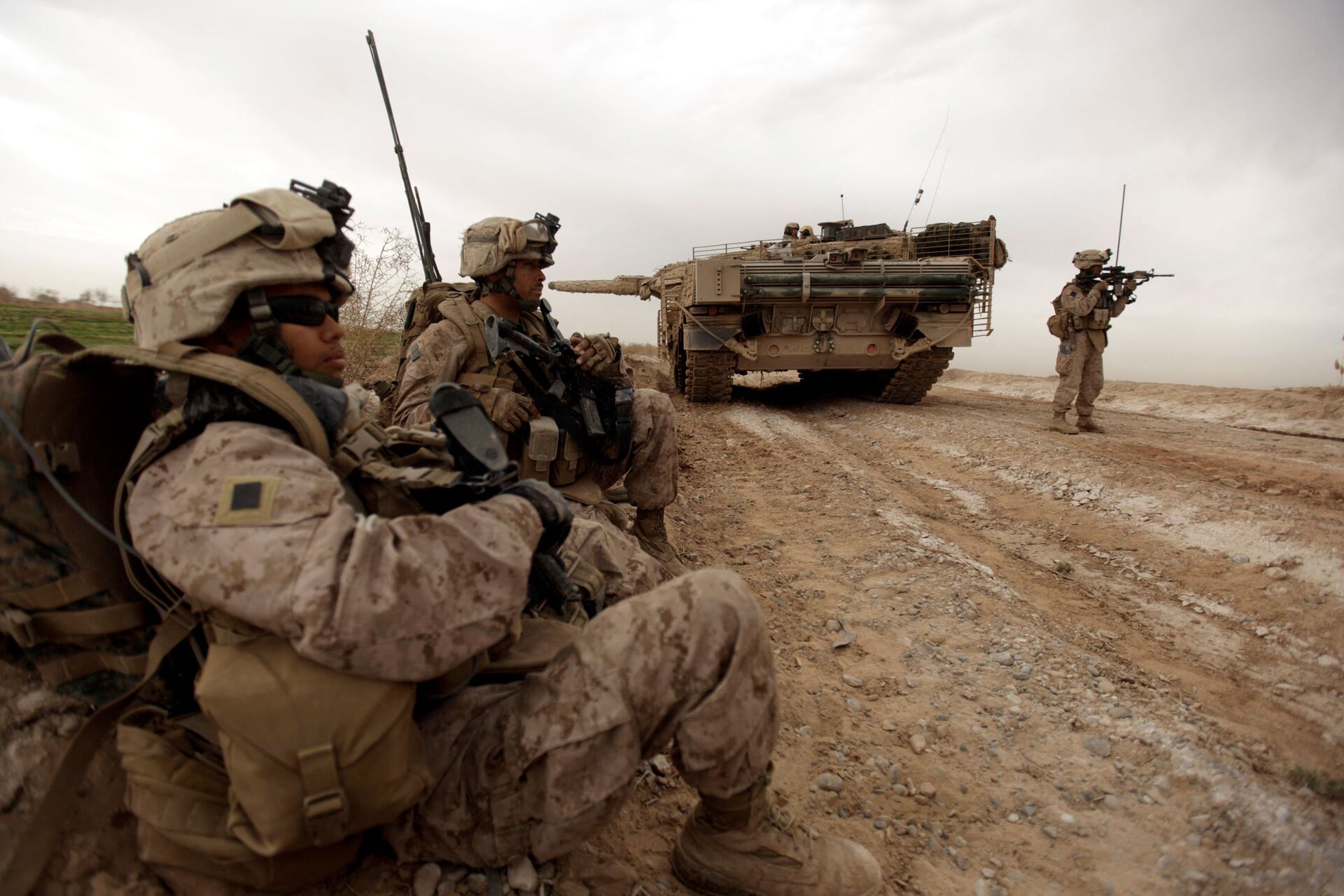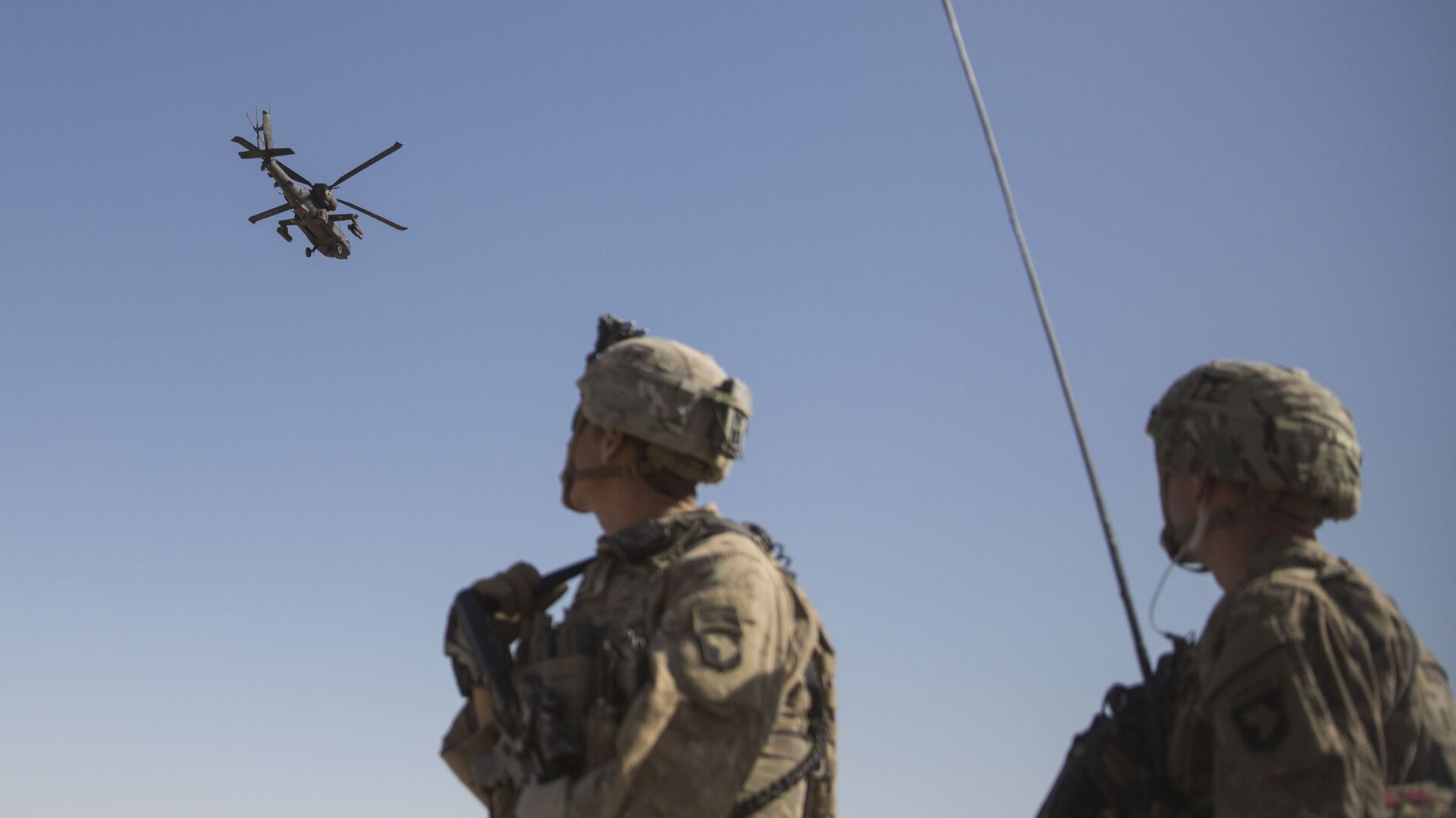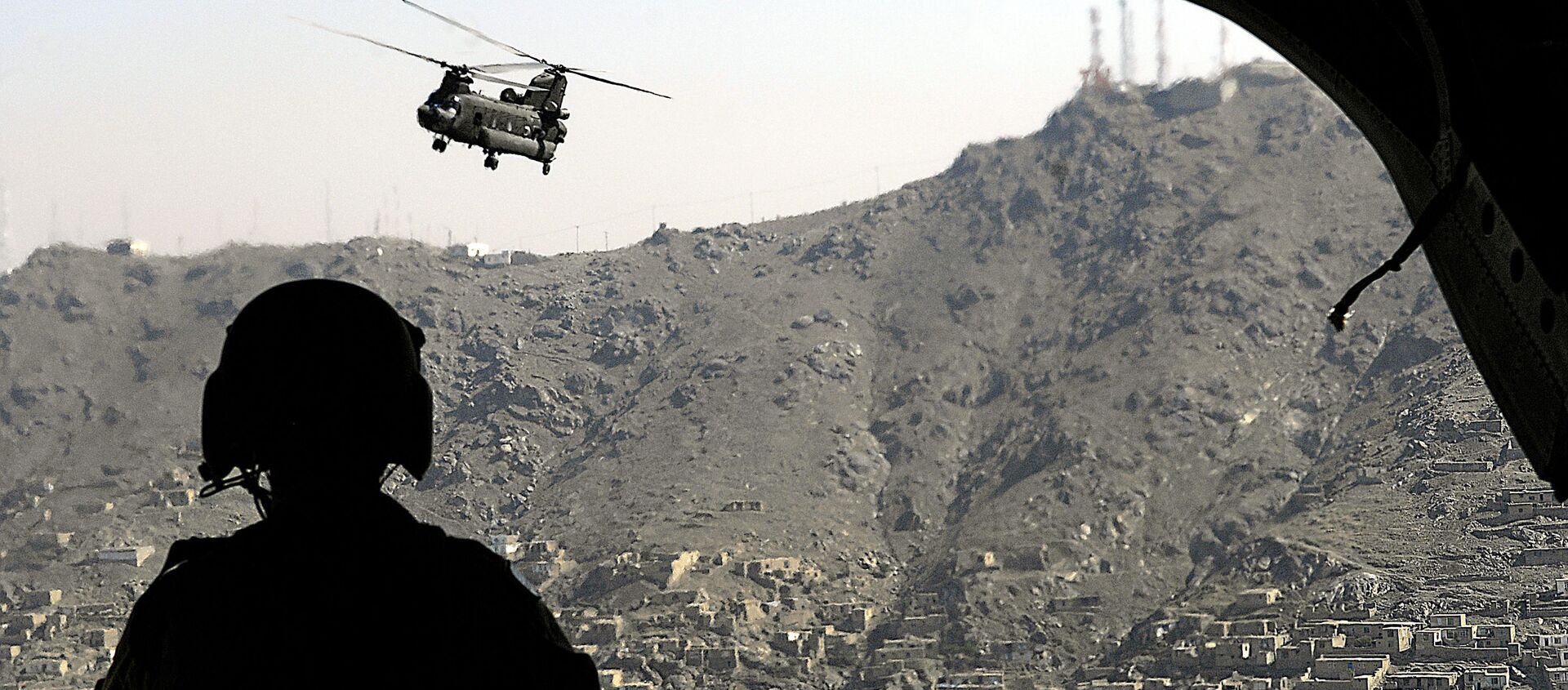The US military is already performing so-called over-the-horizon operations, undertaken from outside the nation, as it is currently withdrawing from Afghanistan, US Defense Secretary Lloyd Austin said on Thursday.
Speaking at the Senate Armed Services Committee hearing, Austin refused to confirm a claim in Wednesday's The New York Times report that the Pentagon is considering providing military air support to Afghan forces if Kabul or another major city falls to the Taliban after US soldiers leave.
Instead, the Defense Secretary noted that capabilities such as intelligence, surveillance, and reconnaissance (ISR) have already begun to be transported into Afghanistan from outside the nation during the ongoing pullout.
"In terms of our efforts to establish over-the-horizon capability, I would just point to the fact that, as we have retrograded a lot of our capability out of country, we are doing a lot of things over-the-horizon now," Austin said. "ISR is being flown from [Gulf countries]. A lot of our combat aircraft missions are being conducted from platforms in the Gulf. And so we have the capability now to do that."
Austin also stated at the hearing that the military is aiming to reduce the distance between over-the-horizon forces.
“What we are looking for is the ability to shorten the legs going forward by stationing some capability in neighboring countries. That is still a work in progress,” he said, without specifying a time frame for achieving such an objective.
The United States currently has no basing agreements with Afghanistan's neighbors, and various geopolitical factors, such as the countries' ties to Russia, could prove difficult to make such arrangements.

As all US military personnel leave Afghanistan by the 20th anniversary of the September 11 terror attacks, in accordance with President Biden's decision, US officials have insisted that the military will be able to counter terrorism threats via over-the-horizon operations, but the exact details on how such operations will be carried out and where those troops could be stationed are still reportedly being worked out.
The Fate of Local Allies
As US soldiers leave, the unresolved problem remains of what will happen to Afghan nationals who assisted the US and are now in danger of being persecuted and killed by the Taliban. In the face of the reported delay in processing their claims for Special Immigrant Visas to the US, lawmakers have pressed the Biden administration to transfer those Afghan allies to a safe area such as Guam, according to media reports.
Independent Senator Angus King of Maine asked both Austin and Joint Chiefs of Staff Chairman Gen. Mark Milley about the issue, although the top military officials did not directly commit to evacuating Afghans, but pledged to "keep faith" with those who assisted the US, as they did in the past.
"In terms of specific actions, Department of State has the lead on the Special Immigrant Visa program and some other programs with respect to those Afghans that have supported us," Milley said. "That planning is working through the system right now, but I can commit to you that it's my belief that the United States government will do what is necessary in order to ensure the safety and protection of those that have been working with us for two decades."
The senator replied that it was the term "working through the system" that was concerning him most of all, and Milley said he understood that.
However, Austin added that it is "very important to us and we're pushing as hard as we can on our end to move as fast as we can."
The complete withdrawal of troops was part of the first peace accord between the US and the Islamist Taliban movement in over 18 years of the Afghanistan war, signed in early 2020. The original date for the end of the troops' withdrawal indicated in the agreement was set for May 1, but the Biden administration, after reviewing the withdrawal of troops and the peace deal itself, determined that the deadline was impracticable, and as a result postponed the date by several months.



